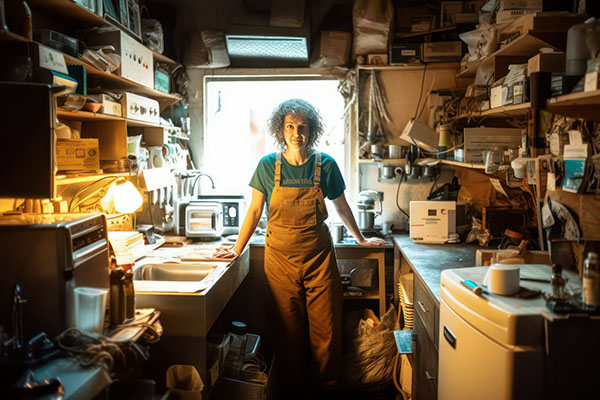NOVEMBER DIARY [11 ITEMS]: Hyperinflation Centenary; Elon's Biography; Derb On AI; and Goodnight, Henry Kissinger; ETC.!!, by John Derbyshire
This month, November 2023, marks [sic] a hundred years since the peak of the hyperinflation that afflicted Germany after World War One.
When the 1,000-billion Mark note came out, few bothered to collect the change when they spent it. By November 1923, with one dollar equal to one trillion Marks, the breakdown was complete. The currency had lost meaning [Paper Money, by ”Adam Smith,” 1981].
In my English adolescence I knew an elderly couple of Silesian Jews, the ”Kellermans,” who had themselves been adolescents in Germany when hyperinflation hit. They had lurid tales about it: kitchen cabinets stuffed full of banknotes to pay for the family’s bread and cheese, cigarettes in widespread use as an alternative currency, and so on.
How fortunate we are to live in this time and place, under governments far too wise, responsible, and incorruptible to let such misfortunes fall upon us!
My book of the month—actually my Audible download of the month—has been Walter Isaacson’s biography of Elon Musk. What a story!
Isaacson makes clear what I had always supposed: that Musk is an Aspergery low-empathy geek. The geekiness comes, however, with massive strength of will: unshakable faith in his own vision, relentless drive, defiance—often angry defiance—of all risk and negativity.
Listening to Isaacson’s very detailed account of Musk’s work schedule I found myself alternately wondering: (a) When does the guy ever sleep? and (b) How on earth do his employees put up with him?
By way of illustration: Fall of 2008 was a low point for Musk. The first three attempts by his company SpaceX to launch their first rocket, the Falcon 1, had all failed. Both SpaceX and also Musk’s electric-car company Tesla were teetering on the edge of bankruptcy.
Most of us would have quit at that point, but Musk was determined on a fourth launch attempt, in the teeth of skepticism not only from investors but also from his own engineers.
That fourth attempt, at the end of September 2008, was a success. Fifteen years later, in my November 25th edition of The Economist [SpaceX tests Starship, and prepares to face down Amazon] I read this:
In the 21 years since it was founded, SpaceX, a rocketry firm set up by Elon Musk, has become the world’s space superpower. Its cheap, reusable Falcon 9 rocket dominates the launch industry. Thanks mostly to its Starlink satellite-internet business, the firm sends more mass into orbit each year than every other company and country on Earth combined.
It has bigger ambitions still. November 18th saw the second test flight of its Starship rocket, the biggest ever built. The first test, in April, ended with a damaged launchpad and a rocket that self-destructed after trouble with several of the first stage’s 33 engines and the failure of its second stage to separate properly.
The second launch was a big improvement. A new water-dampening system stopped the rocket from wrecking the rebuilt launch pad. All the first stage’s engines stayed lit. A new ”hot staging” separation system, which required the second stage to begin firing its engines while still attached to the first, seemed to perform well … The firm had hoped the first stage might fly itself back to sea level for a landing test, but it blew up shortly after separation. The second stage, meanwhile, reached an altitude of 148km before some kind of malfunction activated its own self-destruct system.
Such fireworks are par for the course. Unlike its older rivals, SpaceX puts its faith in ”iterative design”—trying often and learning from the failures, rather than trying to foresee every problem in advance. The lower stages of its Falcon 9 rockets crashed and burned many times before the firm mastered the art of landing and re-using them, something that had not been done before. These days, with more than 250 successful missions, the Falcon 9 is the most reliable rocket ever made. One of its boosters has flown 18 times.
Elon Musk’s Starlink business could soon be competing with Jeff Bezos’s Kuiper.
Learn how SpaceX is preparing to face down Amazon https://t.co/6IOJrwYFnm





